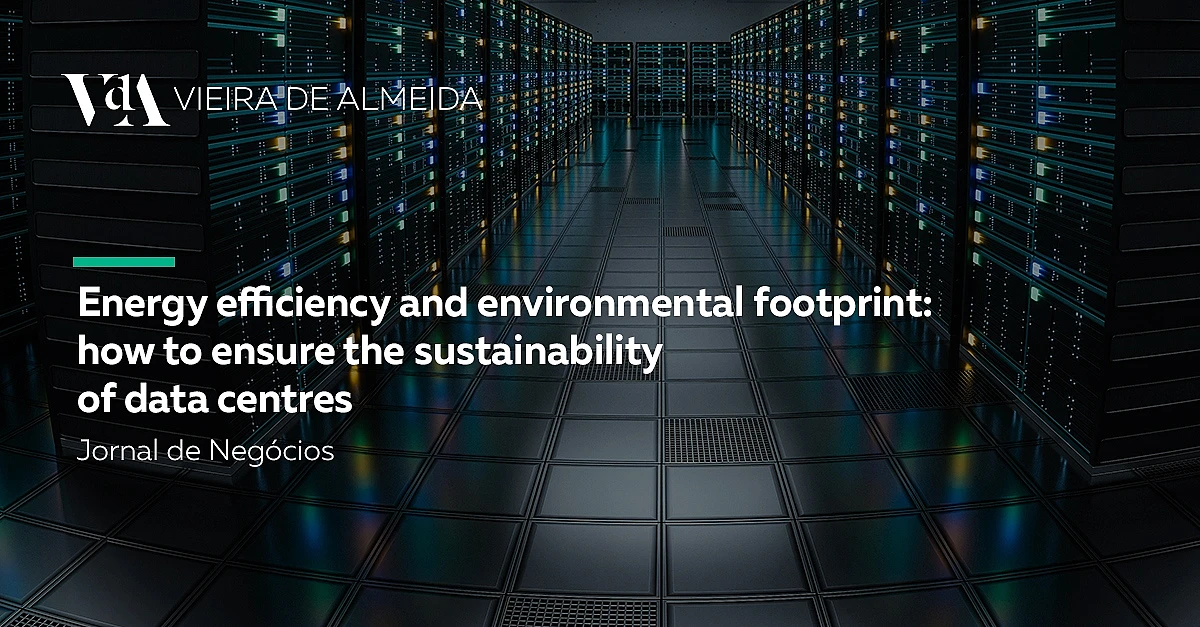Assunção Cristas, Co-Head of Practice Partner Environment & Climate Change, has written an opinion article published by Jornal de Negócios, in which she analyses the challenges and opportunities that the digital transition poses for environmental sustainability, with a particular focus on data centres.
As the data economy and the exponential growth of Artificial Intelligence promise to accelerate innovative solutions to global problems, the VdA Partner warns that this technological evolution requires highly energy- and water-intensive infrastructure, calling for ambitious policies for climate change mitigation and adaptation. The author stresses that energy and water have now become strategically critical for any investment in data centres, noting that the sector could account for 3.2% of European electricity consumption by 2030. She therefore argues that the use of clean energy, sourced exclusively from renewables and at competitive prices, should be regarded as a basic requirement to ensure the genuine sustainability of these infrastructures. The need for co-location between renewable generation and data centres, combined with robust energy-efficiency practices — the monitoring and reporting of which are already mandatory under European legislation — is, according to Assunção Cristas, one of the essential pillars of this transformation. Water use also presents new challenges, particularly in the face of drought and scarcity scenarios.
The author notes that, although there are technological solutions that avoid direct water consumption, system design should prioritise models that minimise the impact on public networks, such as closed-loop systems using rainwater, seawater or innovative underwater cooling solutions. Assunção Cristas also emphasises that any data centre project must be developed in line with the European Union’s environmental objectives and the criteria of the EU Taxonomy, covering not only climate-mitigation and adaptation targets but also the protection of water and marine resources, the circular economy, pollution prevention and biodiversity preservation. She further highlights that alignment with the Taxonomy, although not mandatory, will be crucial to avoiding greenwashing risks and could decisively influence access to financing and institutional investors by contributing to the green ratios reported by the financial sector.
In the article, Assunção Cristas concludes that the sustainability of data centres must be embedded from the earliest stages of project design, arguing that only a rigorous and transparent approach aligned with European requirements will enable the sector to position itself as part of the solution for a more responsible and resilient digital future.
- Read the article here.
